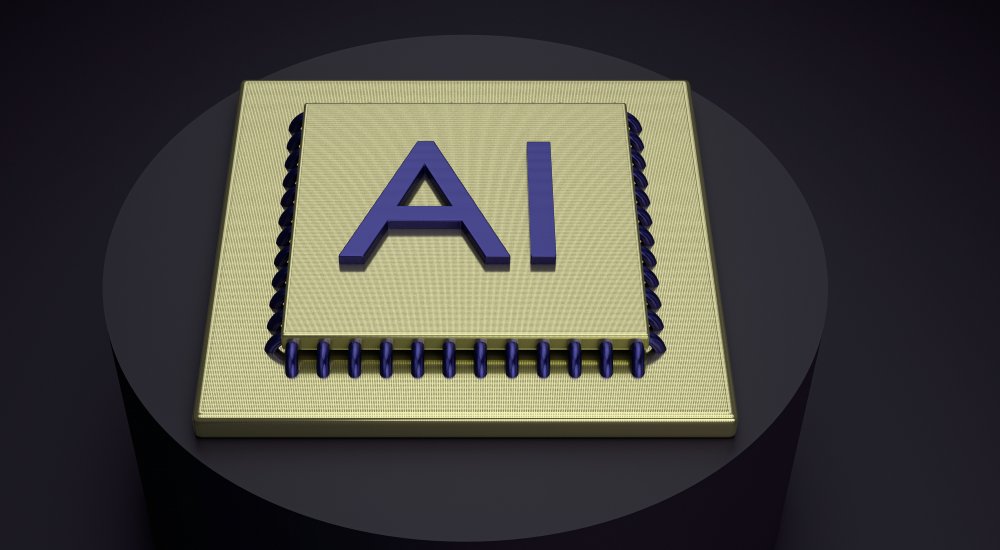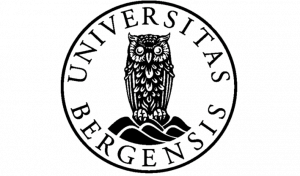Lead AI postdoctoral research fellow at the Department of Linguistic, Literary and Aesthetic Studies University of Bergen
Digital Narrative

UiB - Knowledge that shapes society
Through robust and close interaction with the world around us – globally, nationally and locally – we shall be instrumental in building a society based on knowledge, skills and attitudes.
Do you want to take part in shaping the future?
Lead AI postdoctoral research fellow within Digital Narrative
At the Department of Linguistic, Literary and Aesthetic Studies, there is a vacancy for a postdoctoral research fellow position within Digital Narrative (computational narrative systems). The position is for a fixed term of 3 years and is associated with The Center for Digital Narrative (CDN).
The position is open to an incoming candidate, see LEAD AI and MSCA mobility rules | LEAD AI | UiB.
About the host research group and research theme
The Center for Digital Narrative focuses on algorithmic narrativity, interactive environments, materialities, and shifting cultural contexts in which digital narratives are received and processed. The CDN investigates the ways that the interactions of human authors and non-human agents renew narrative forms, how digital narratives have changed over time, and how textual materialities and cultural contexts are now reshaping the use and function of digital narrative. The activities of the Center include research group meetings, interactions with international research leaders in digital narrative, researcher training, PhD summer schools, frequent symposia and exhibitions.
The candidate will be affiliated with the CDN’s Computational Narrative System research node, which focuses on how computers model narratives. The postdoc will work with Professor Nick Montfort and Professor Rafael Pérez y Pérez to develop a systematic collection of “narrative nubs”, which are miniature, working versions of AI storytelling systems from the past several decades through today, developed in the tradition of symbolic AI. The narrative nubs will be programmed in Python 3 in a consistent way, in good style, and will embody the essential advances each system originally made, share libraries with each other when appropriate, and serve both educators and researchers. The systems that are the basis for these nubs will include ones using story grammars, planning, cognitive models, models of the writing process, and the distinction between story and discourse. Some prominent examples are TALE-SPIN, DAYDREAMER, and MEXICA. The research objective is to develop a stronger understanding of the contributions made by these important historical systems and to establish a foundation for future research and teaching in which the approaches of these systems can be elaborated, combined, or questioned.
- The applicant, in collaboration with Professor Montfort and Professor Pérez y Pérez, will write a programming style guide and determine principles for the development of nubs.
- The applicant will develop several nubs and libraries/modules for them, e.g., a hierarchical task network planner and a conceptual dependency model.
- The applicant will publish research papers on the project, both independently and with co-researchers, and is also expected to present the research at conferences and to participate in other outreach and dissemination related to the project.
- The applicant will collaborate with other members at the CDN and participate in and contribute to its seminars and events.
About the LEAD AI fellowship programme:
LEAD AI is the University of Bergen's career and mobility fellowship program for training 19 postdoctoral fellows in artificial intelligence.
The program has received funding from the European Union’s Horizon Europe research and innovation programme under the Marie Skłodowska-Curie Grant Agreement No. 101126560.
The LEAD AI programme offers high-quality inter- and transdisciplinary research and training opportunities in the area of artificial intelligence supported by a dedicated supervision and mentoring, encouraging inter-sectoral exposure, in particular:
- Academic freedom.
- Benefits from knowledge and skills transfer between disciplines, organisations and sectors.
- Structured, skill-based training.
- High-quality working conditions.
- Personal career support.
- Equal opportunities.
For more information see the LEAD AI webpage or send an email to leadai@uib.no.
Qualifications and personal qualities:
- Applicants must hold a Norwegian PhD degree or an equivalent degree within a relevant subject area, such as digital culture, digital humanities, computational media, or a related field, including computer science if the dissertation project had a significant humanistic component, or must have submitted their doctoral thesis for assessment prior to the application deadline. It is a condition of employment that the PhD has been awarded.
- Applicants should have a genuine interest in artificial intelligence, and the research proposal must be related to AI.
- Applicants cannot previously have been employed as a postdoctoral fellow at UiB and they cannot be employed by any other institution for the time of the fellowship.
- Experience with AI-related research and/or innovation is an advantage.
- Experience in one or more of the following areas is an advantage: 1) narrative theory, computational creativity with narrative as the domain, and cognitive science approaches to narrative; 2) the history of story generation and related areas of computing; 3) having released and maintained software for the use of researchers and educators.
- Applicants must have programming abilities that are appropriate to the narrative nubs project.
- The LEAD AI mobility rules must be followed.
- Applicants must be able to work independently and in a structured manner and have the ability to cooperate with others.
- Applicants must have excellent skills in oral and written English (self-assessed in the CV and demonstrated in the application).
- The application and relevant documents must be in English.
Personal and relational qualities will be emphasized. Research experience, ambitions and potential will also be considered during candidate evaluation.
Special requirements for the position:
The University of Bergen is subjected to the regulation for export control system. The regulation will be applied in the processing of the applications.
About the position of postdoctoral research fellow:
The postdoctoral position is a fixed term position with the primary objective of qualifying the appointee for work in top academic positions. The position may be extended by up to one year (maximum 4 years in total) if the appointee is granted externally financed research stays abroad. Individuals may not be hired for more than one fixed-term period as a postdoctoral research fellow at the same institution.
For all LEAD AI fellows, a Personal Career Development Plan (PCDP) will be developed jointly by the fellow, supervisor, and co-supervisor by the end of Month 3 of the fellowship, including a plan for the individual research budget, and information on additional funding where applicable.
It is a requirement that the project is completed within the course of the period of employment.
What we offer:
- An engaged and professionally stimulating working environment.
- Position as postdoctoral fellow (code 1352 in the basic collective agreement) and a gross annual salary of NOK 615 700 (equivalent to pay grade 63) upon appointment. Further increases in salary are made according to length of service in the position. A higher salary may be considered for a particularly well-qualified applicant.
- Welfare benefits* and social benefits including pension-saving in the Norwegian Public Service Pension Fund, occupational injury insurance, full salary during sick leave for 52 weeks, and paid parental leave**.
- Extension of the position term (work contract) due to sick leave and parental leave.
- Norwegian language courses free of charge.
- High standards for working hours, holidays, place of work, health, and safety.
- Access to specific training activities exclusively provided within the framework of the LEAD AI programme.
*) Subject to membership in the Norwegian National Insurance Scheme.
**) Right to paid parental leave requires 6 months of paid work before the first day of leave. See full requirements.
How to apply:
Before starting the online application process, please familiarise yourself carefully with our application requirements in the Guide for Applicants and Application template. It is essential that all required attachments (see next section) are uploaded via our electronic recruiting system JobbNorge. Before uploading any documents in the portal (to minimise repetition of information):
- In the ‘JobbNorge-application field’: Only write your name.
- In the ‘JobbNorge-CV form’: Only fill in your 1) personal details, 2) information about your PhD-degree (in the field ‘Academic qualifications’) and 3) recent relevant work experience.
- You do not need to fill in any other sections in the JobbNorge form, as all the information we need will be provided by you when attaching the mandatory elements listed in the next section.
Your application must include:
- A research proposal outlining your contribution towards the thematic area and host research group described above.
- A brief account of your motivation for applying for the position.
- CV with list of any works of scientific nature (publication list).
- A mobility declaration.
- Ethics and security issues: self-assessment form.
- An initial self-assessment of opportunities for mandatory and recommended open science practices.
- Names and contact information for two referees. One of these should be your main PhD supervisor.
- Letters of recommendation from the graduating university or previous employers are encouraged but not mandatory.
- Transcripts and diplomas. If you have not yet completed your PhD degree, please submit a statement from your institution confirming that the thesis has been submitted.
- Relevant certificates/references.
The application and appendices with certified translations into English must be uploaded to JobbNorge.
Evaluation
We anticipate the employment procedure to take approximately 4 months from application deadline. Eligible applicants will be evaluated by three internationally renowned experts and assessed against criteria addressing excellence, impact, implementation, quality of the researcher and training and knowledge transfer. Details are stated in the Guide for applicants.
General information:
For further details about the position, please contact:
Professor Jill Walker Rettberg, Co-Director of the Center for Digital Narrative (CDN) at the Department of Linguistic, Literary and Aesthetic Studies, phone number: +47 55 58 84 31 or email jill.walker.rettberg@uib.no.
For HR related questions, please contact:
Senior Executive Officer Turid Høyland, Faculty of Humanities, phone number: +47 55 58 93 34 or email turid.hoyland@uib.no.
The public sector shall reflect the diversity of Norwegian society to the greatest extent possible. Age and gender balance among employees is therefore a goal. People with immigrant backgrounds and people with disabilities are encouraged to apply for the position.
We encourage women to apply. If multiple applicants have approximately equivalent qualifications, the rules pertaining to moderate gender quotas shall apply.
The University of Bergen applies the principle of public access to information when recruiting staff for academic positions.
Information about applicants may be made public even if the applicant has asked not to be named on the list of persons who have applied. The applicant must be notified if the request to be omitted is not met.
Further information about our employment process can be found here.
About The University of Bergen (UiB)
The University of Bergen is a renowned educational and research institution, organised into seven faculties and approximately 54 institutes and academic centres. Campus is located in the centre of Bergen with university areas at Nygårdshøyden, Haukeland, Marineholmen, Møllendalsveien and Årstad.
There are four departments and four centres at Faculty of Humanities. Read more about the faculty and departments.
